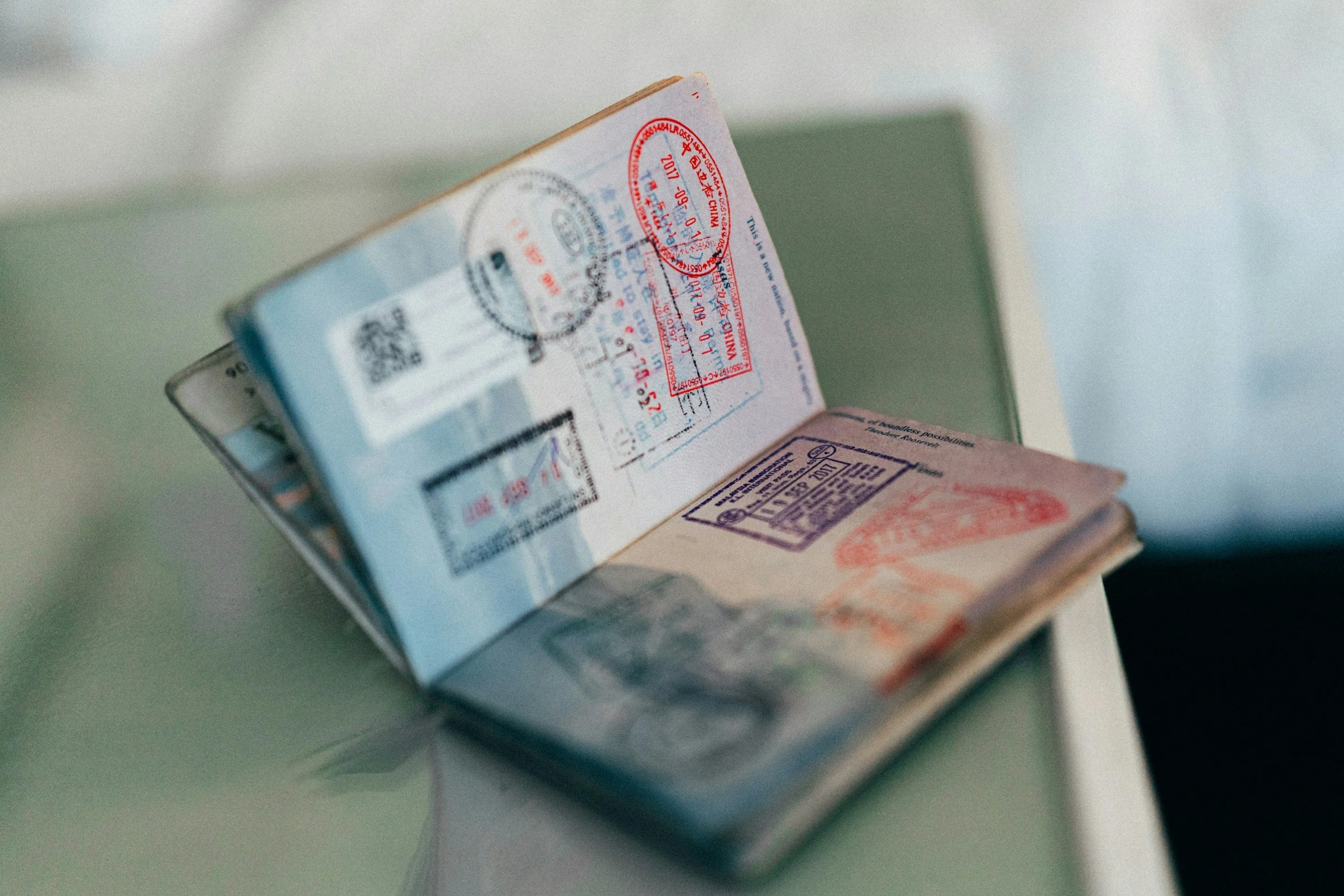Excess Absences: What It Really Means For Your Citizenship Application
Know the rules, understand the exceptions, and make a strong case for flexibility.
*Written by Michelle, with a dash of ChatGPT magic for wording and flow!*
By far the most common issue I see in naturalisation applications is excess absences, the focus of this article.
I’ve supported many clients through this exact challenge, and for all sorts of reasons, including Covid-related travel disruption, health issues (your own or a family member’s), bereavements and funerals, business travel, and more.
With not a single refusal to date, I know how to build a compelling case, especially where there’s a good immigration history and strong ties to the UK. In this article, I’ll talk through what I’ve found works, and how to improve your chances even with a less-than-ideal travel history.
Prefer to talk about it? Me too. Book a free consultation with me today - I’ll be pleased to hear from you.
Absences and Your Citizenship Journey
When applying for British citizenship, one of the key things the Home Office looks at is whether the UK is truly your home, not just legally, but practically. Time spent outside the UK in the years leading up to your application to naturalise can sometimes raise questions about how settled here you really are.
Trips abroad, especially if they’re frequent or lengthy, may give the impression that your life isn’t fully based in the UK. That doesn’t necessarily mean that your application is doomed to fail, but it does mean that you’ll need to take extra care to show that the UK is indeed your long-term home.
Absences: The Requirements
When considering your application, the Home Office looks at absences from two angles:
(1) The total number of days you were outside the UK during the full ‘qualifying period’; and
(2) The total number of days you were outside the UK in the final 12 months before applying.
In this article, I’ll look at what these thresholds mean in practice. But before we get into the thresholds, and what it means if you exceed them, here are a few general insights relevant to all applicants:
🌟 Insight 1: Home Office records are patchy, so your best effort is good enough when calculating your absences. You must not intentionally seek to mislead or deceive in your application, but small genuine mistakes will generally be overlooked.
🌟 Insight 2: Your travel days don’t count. Only full days spent outside the UK are counted towards your total absences, so the days when you physically departed from, or arrived in, the UK, can be disregarded. For example, if you left the UK on 1 January and returned on 2 January, it doesn’t count as an absence at all. If you returned on 3 January instead, that would be one day of absence.
🌟 Insight 3: Using Excel is a popular way to record and calculate your absences, by including “-1” in the formula. Alternatively, you can get the gov.uk application form to work it out for you, although it’s a bit hidden!
First, click through to the section titled “Trips outside the UK” – it’s quite far into the form. You can then enter your trips, click your name in the top right corner, then select “Download PDF”. Your total absent days will be tallied up automatically in the PDF you download.
These little tricks can save you some time and energy, especially if you’ve been in and out of the UK a lot.
Finally for this section, 🌟insight 4: You do not need to explain and evidence every single absent day, only those in excess of the applicable threshold.
(1) Absences in the Qualifying Period
Your qualifying period is the time immediately before the date of your application. If you’re married to a British citizen, your qualifying period is three years. For everyone else, it’s five years.
Up to 270 Days, or Up to 450 Days
The starting point is that absences should not exceed either 270 days in a three-year qualifying period, or 450 days in a five-year qualifying period. If you’re under these thresholds, your application should be granted unless there are any other grounds for refusal.
270-300 Days, or 450-480 Days
The Home Office will grant your application if you exceed the applicable threshold by up to 30 days, unless there are any other grounds for refusal. If this applies to you, you don’t need to address the excess absences, but you should ensure that your application is watertight everywhere else.
300-540 Days, or 480-900 Days
These brackets form the classic ‘excess absences territory’ where most of my clients find themselves.
If this is you, the Home Office can still grant your application if you can prove that certain circumstances apply. This is known as the Home Office ‘exercising discretion’. You should ask the Home Office to exercise discretion, and you will need to persuade them to do so. Sounds intimidating, but read on.
Where and how should you persuade the Home Office? The place to do this is in a cover letter, also sometimes known as a letter of representations.
Writing this letter is a big part of what I do for my naturalisation clients. In the letter, I’m trying to persuade the Home Office that your application is one where discretion is appropriate. I will be arguing two things: (1) that your special circumstances make discretion appropriate in your case, and (2) that you have strong ties to the UK demonstrating that this country is indeed your home, notwithstanding the excess absences.
Taking each of these in turn:
Special Circumstances, or Good Reasons
Firstly, Home Office guidance sets out several good reasons for excess absences, including work-related travel, compassionate reasons, and global pandemic. This can only really be addressed in the cover letter, and supporting evidence is vital.
For example, work-related travel might be supported by a letter from your employer, travel booked by HR, or itineraries and meeting arrangements. Covid-19 disruption might be proved by flight cancellations, positive test results, or other medical evidence.
🌟 Insight 5: some of my former clients have used a letter or email from their employer, confirming that the employer was happy for the individual to work remotely from overseas during the pandemic.
Another factor I sometimes draw on is where my client has few absences in the time immediately before their qualifying period. This is not essential, so it’s not a dealbreaker if it doesn’t apply to you, but it can be helpful for some people.
For all of these special circumstances, evidence is essential, but experience has shown me that the Home Office is prepared to be flexible to a degree.
Ties to the UK
The second important factor which will push your application towards the exercise of discretion is your ties to the UK.
Most of my clients have plenty of these, but the risk is that you forget to prove it properly. 🌟 Insight 6: be really methodical with this.
Home Office guidance points to four things which will show ties to the UK: home, family, finances, and employment. While none of these are mandatory, working through each one and thinking about what evidence you can provide tends to be a good approach.
‘Home’ might be evidence that you rent or own your accommodation in the UK. ‘Family’ might be evidence of your relation to UK-based family members, such as a birth certificate, plus evidence of their immigration status in the UK. Finances can be a couple of bank statements. Employment might be some payslips and/or a P60. The same document might be able to serve two purposes, if you’re already using it for residence evidence.
More Than 540 Days, or More Than 900 Days
Unfortunately, if your absences fall into these brackets, it’s highly unlikely that your application will be successful. The best approach in this situation is to wait until you can bring your absent days down to below 540 or below 900, depending on the length of your qualifying period.
Qualifying Period Absences: Summary
Five-Year Qualifying Period
<450 days – permitted.
450-480 days – Home Office will forgive, provided there are no other grounds for refusal.
480-900 days – need to ask for discretion based on special circumstances and strong ties to the UK, with cover letter and evidence.
>900 days – Home Office unlikely to exercise discretion, applicant normally advised to wait to apply until they can reduce their qualifying period absences below 540 days.
Three-Year Qualifying Period
<270 days – permitted.
270-300 days – Home Office will forgive, provided there are no other grounds for refusal.
300-540 days – need to ask for discretion based on special circumstances and strong ties to the UK, with cover letter and evidence.
>540 days – Home Office unlikely to exercise discretion, applicant normally advised to wait to apply until they can reduce their qualifying period absences below 540 days.
(2) Absences in the Final Year
The Home Office also looks specifically at how much time you’ve spent outside the UK during the final year leading up to your application. This part of the assessment applies equally to everyone, whether your qualifying period is three years or five.
Up to 90 Days
If your final-year absences do not exceed 90 days you meet the threshold, and your application should be granted unless there are any other grounds for refusal.
90-100 Days
Your application will be granted if you exceed the 90-day threshold by up to ten days, i.e. no more than 100 days in total, unless there are any other grounds for refusal. If this applies to you, you don’t need to address the excess absences, but you should ensure that your application is watertight everywhere else.
100-180 Days
If your final-year absences fall within this range, you will need to ask the Home Office for discretion, and how you must do that depends on whether you meet the other residence requirements for naturalisation.
If yes – you need to show meaningful ties to the UK, such as ongoing employment, UK-based family members, and an established home here.
If no – the threshold is higher. In addition to showing strong ties to the UK, as above, your excess absences must be justified by compelling circumstances, such as unavoidable work travel, global pandemic, or other compassionate reasons. Again, evidence will be key.
More Than 180 Days
Beyond 180 days in the final year, things become more unpredictable. Links to the UK and special circumstances remain important, but I generally advise applicants to bring their final-year absences below 180 days before applying, if possible. The Home Office has drawn a line at 180 days, so it follows that there must be an advantage to being below that line, rather than above it.
Final Year Absences: Summary
<90 days – permitted.
90-100 days – Home Office will forgive, provided there are no other grounds for refusal.
100-180 days – need to ask for discretion based on factors such as strong ties to the UK and special circumstances, with cover letter and evidence.
>180 days – Home Office guidance suggests that discretion could be exercised, but I consider it safer to bring final-year absences below 180 days, wherever possible.
Final Thoughts
If you’re navigating this process with more absences than you might like, here’s a final 🌟 insight 7: it’s generally safest to proceed when you have excess absences either in the qualifying period or in your final year – not both. That’s because, throughout the guidance, discretion is often available only when the other residence requirements are fully met. There’s a risk this could catch you if your application is one where your absences exceed both thresholds.
Before you apply, make sure you’re confident about the rest of the eligibility criteria. Here’s a quick reminder of those:
Residence requirements: you need to have lived lawfully in the UK for the last five years, or three years if you’re married to a British citizen. You must hold settled status or indefinite leave to remain when you apply, and if you’re not married to a British citizen – also for 12 months prior to the date of application. You must have been physically present in the UK on the date at the beginning of your qualifying period.
Character requirements: if you’ve had criminal convictions, immigration problems, or financial issues such as bankruptcy, it’s best to seek legal advice before submitted your application. The Home Office expects applicants to meet a ‘good character’ requirement, which can be undermined by issues such as these.
English language: you can prove your language skills by passing an approved test, or by having a degree taught in English, whether in the UK or abroad. The evidence differs slightly depending on where your degree is from.
Knowledge of Life in the UK: this is covered by taking and passing the Life in the UK Test.
If you’d like me to help you prepare your application, or just figure out where you stand, please book a free consultation to get started – you’ll find booking links around this site, and I’ll be delighted to hear from you.


